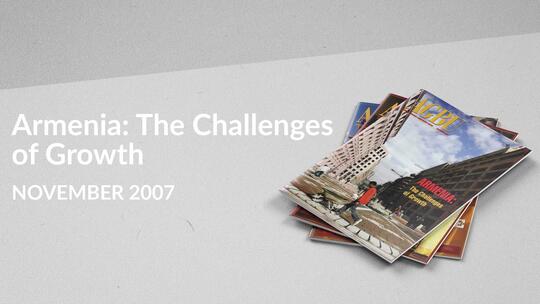by Julia Hakobyan
If, as in other societies, real estate prices are an indicator, Armenia has entered a Golden Age in home buying. Or in home selling, rather, as the years of double-digit Gross Domestic Product have paralleled a dramatic rise in the cost of home-buying.
Over the past decade, real estate prices—starting from a low point of the post-Soviet collapse—have increased tenfold, reaching amounts comparable to some European countries.
